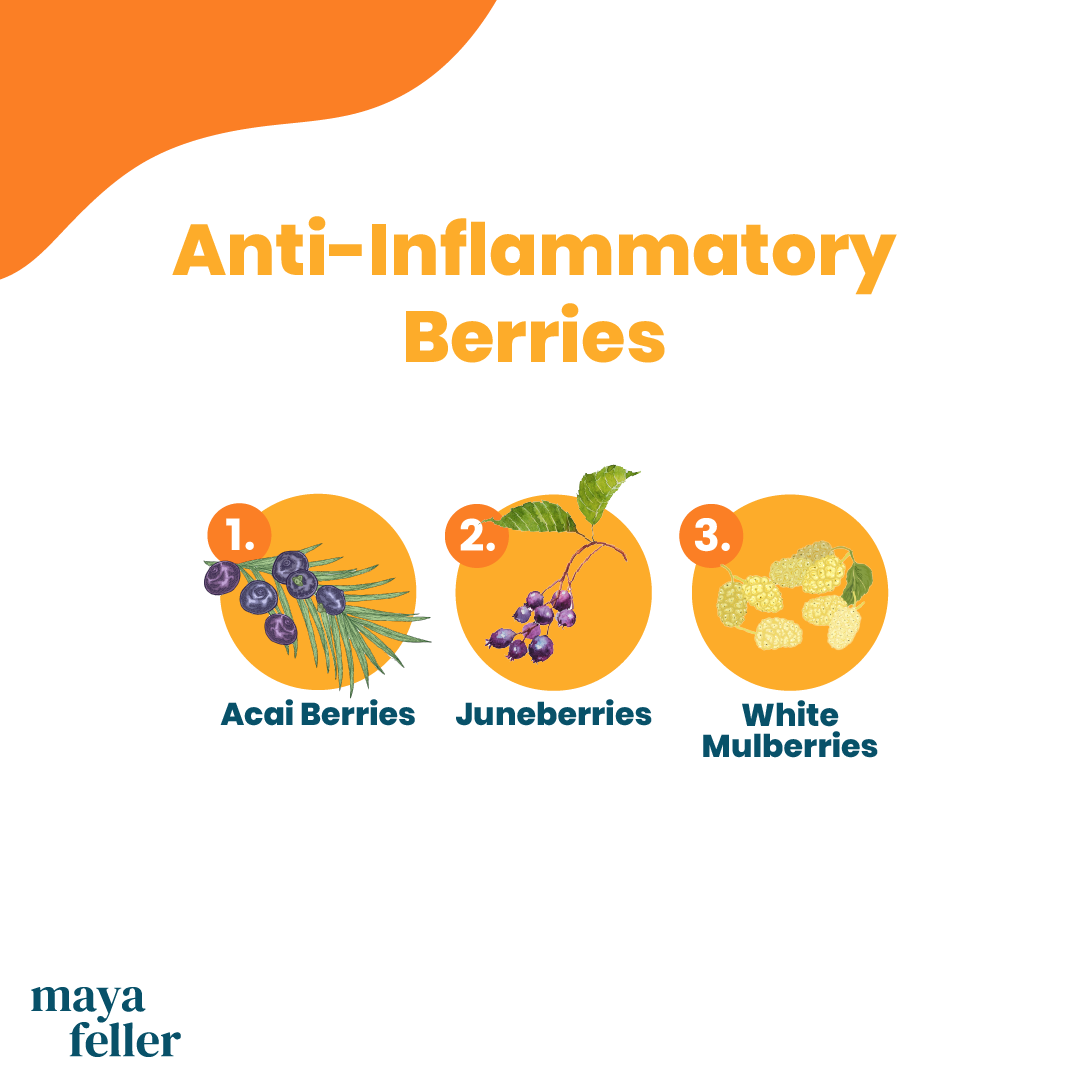Struggling With Inflammation and Need Help? These Common Fruits Pack a Powerful Punch!
Want to know how you can reduce inflammation related symptoms such as bloat, fatigue, and achy joints and prevent chronic illness? Keep reading!
Earlier this year we talked about Chronic Inflammation. I talked about what it does in the body and how to combat it. Now we want to take a look at some powerful fruits that you may already have in your home or kitchen and how they help to reduce inflammation.
Inflammation is our bodies’ normal and protective response to any immediate or acute dangers. Not all inflammation is damaging. However, negative health outcomes happen when inflammation is chronically present in our bodies. There is a big difference between being stressed because of an upcoming presentation versus being stressed because there is a constant leak in your ceiling. The first is an example of situational stress and the latter is an example of chronic stress.
Our bodies are subjected to a multitude of stressors from environmental exposures, substances consumed, foods we eat, injuries we experience as well as illness on a day to day basis. When these stressors become too much, our body’s defense system can become weakened. This gives rise to oxidative stress and chronic inflammation, the root of many non-communicable diseases. Chronic inflammatory diseases are the largest cause of death in the world, and encompass many chronic conditions including diabetes, cardiovascular disease, and arthritis.
Chronic inflammation often begins as acute inflammation which then expands throughout the body.The development of diabetes, a condition over 11% of the population lives with, can be partially attributed to chronic inflammation. In the body, imagine an interconnected highway of systems, when inflammation is present the highway becomes congested resulting in the initiation and subsequent progression of many chronic diseases. The progression of cardiovascular disease was previously thought to be the result of cholesterol building up within the blood vessels, however, now we understand that the passive buildup of cholesterol in the arteries is driven by inflammation specifically, inflammation within the cells. Nutrition interventions centered around modifying what we eat such as adding in foods that are rich in phytonutrients can be one of the most powerful tools in fighting chronic inflammation. Berries, in particular, are nutrient powerhouses that have the ability to act against the damage that chronic inflammation brings to the body.
These 3 berries are a rich source of antioxidants that help to quell free radical damage and suppress inflammation.

White Mulberries
White mulberries, which are native to china and an important food source for the silkworm, are also a potent source of nutrients that help to protect the body against the damaging effects of inflammation. The main driver of inflammation is caused by free radical damage. Overproduction of free radicals and reactive oxygen species increases the inflammatory response that creates oxidative stress and inflammation. White mulberry fruit has been shown to significantly reduce levels of reactive oxygen species while improving the activity of antioxidant enzymes which work to inactivate the effects of free radicals.
Juneberries
Juneberries, also referred to as saskatoon berries, are very high in flavonoids, particularly anthocyanins, which are responsible for its anti-inflammatory effects. Certain anthocyanins present in juneberries can help to prevent an increase in reactive oxygen species (ROS), and help to decrease the risk of cardiovascular disease by influencing the levels of oxidized LDL particles which are major contributors to the development of cardiovascular disease. When LDL levels are low within the body we tend to have better health outcomes.
Acai berries
Acai berries are another potent source of antioxidants which help to modulate the inflammatory response. They also exhibit hypolipidemic effects which help to prevent fat accumulation thus lowering oxidative stress and inflammation in the body. Reducing lipids in the bloodstream is protective and reduces the risk of cardiovascular disease.
The next time you are shopping and thinking about what to add to your cart to support your heart health, reach for berries. Frozen, jarred, boxed or fresh can all be supportive of your cardiovascular health.
References
- https://www.nutritionadvance.com/types-of-berries/
- https://www.nccih.nih.gov/health/bilberry
- https://www.nccih.nih.gov/health/acai
- http://berryhealth.fst.oregonstate.edu/health_healing/fact_sheets/black_raspberry_facts.htm
- https://www.ncbi.nlm.nih.gov/pmc/articles/PMC5068402/
- https://www.nccih.nih.gov/health/elderberry

Leave a Reply